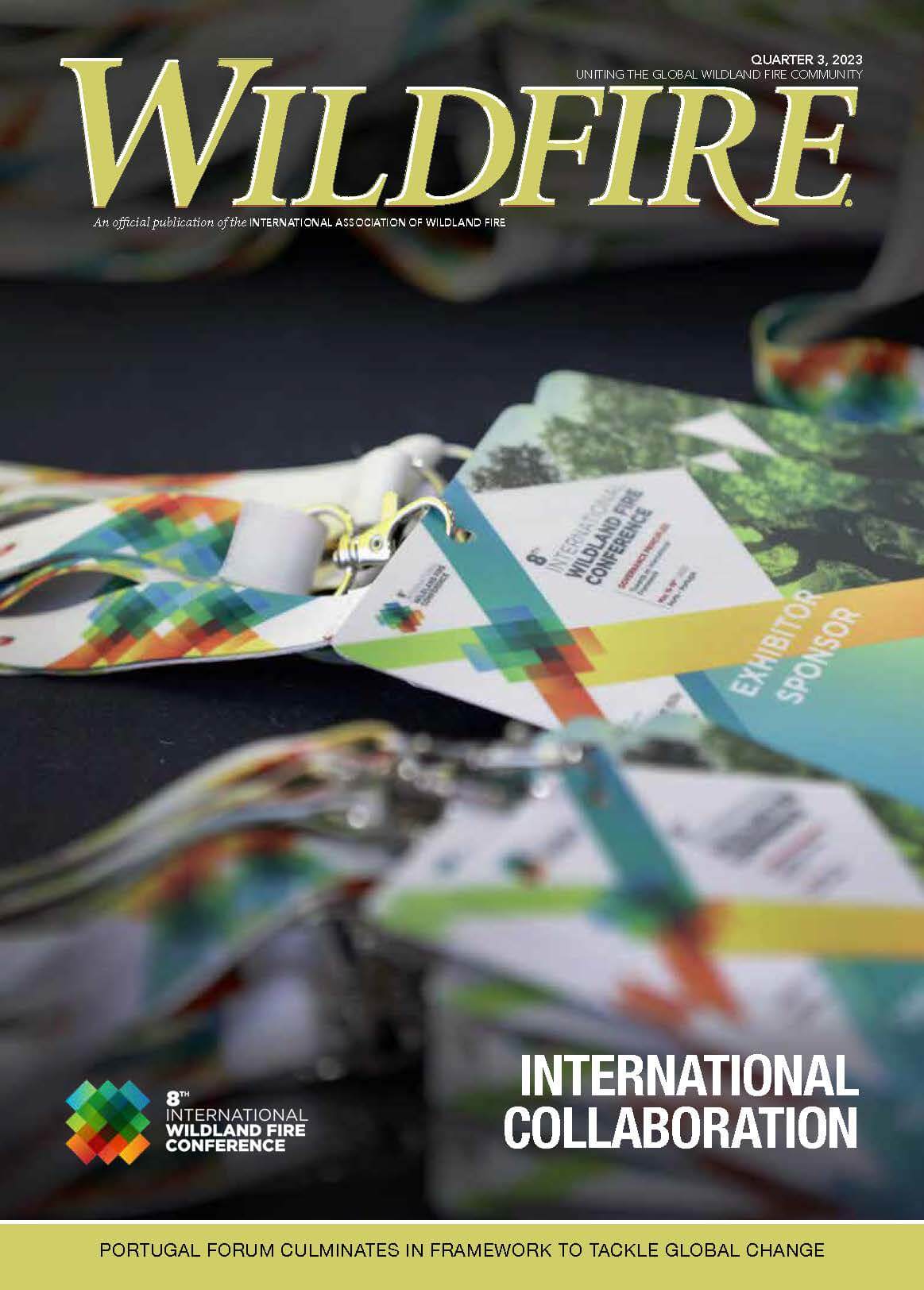Dr. Sayaka Suzuki
Early Career in Fire Science AwardThe International Association of Wildland Fire (IAWF) Early Career Award in Fire Science is given to recognize a promising early-career professional who has demonstrated outstanding ability in any field of wildland fire science. Since its initiation in 2016, the award has been bestowed on five individuals.
Selection of this award was based on open nominations. This year, a sub-committee comprising of seven fire scientists and managers from around the world with a wide variety of expertise and backgrounds evaluated each nominee in the areas of ability and impact, as well as their contribution to the diversity and inclusivity of the wildland fire science field. This year in particular, this award sub-committee faced a very challenging task as the nominees were all strong candidates. Two nominees, however, stood out in this highly competitive field. Unable to choose one over the other, the committee concluded that they were both incredibly deserving of this award, so this year, IAWF is awarding two Early Career Awards in Fire Science.
This year’s recipient of the IAWF Early Career Award in Fire Science conducts crucial research for wildfire spread into and through communities, is a leader in linking the traditional building and wildland fire science communities together, and is a role model for women in the combustion and fire science fields.
Though firebrands are a key factor in outdoor fire spread, such as Wildland-Urban Interface (WUI) fires, there has been little quantification of firebrand production from burning structures. More importantly, understanding firebrand production from burning structures over a range of scales has never been attempted prior to the awardee’s groundbreaking research. The awardee engaged in complex research to quantify firebrand production from real-scale structure combustion, and then conducted a series of intricate experiments over reduced scales to determine if small scale experiments could provide insights into this complex problem. Hardy satisfied with only quantifying firebrand from burning structures, she also worked tirelessly to co-develop continuous-feed firebrand generators, both at reduced scale and full-scale. Both experimental devices, unique in the world, afford the generation of firebrand showers commensurate to burning structures and vegetation. Regarded as a leading expert in firebrands, the awardee has more than 30 journal papers focusing on understanding outdoor fire spread by firebrands, including a comprehensive overview on firebrand processes for Progress in Energy and Combustion Science (PECS). In November 2020, her research on this topic was featured in the journal Science.
Her leadership in the bridging the gap between the traditional building and wildland fire science fields is demonstrated by her involvement in several projects. At the invitation of Springer Nature, an encyclopedia on wildland fires and WUI fires was developed starting in 2016 and was published in 2020. The awardee was the key person to invite from Asia as a section editor (SE) on this gargantuan undertaking. The first edition of the encyclopedia contains 171 contributions, written by more 200 authors from all over the globe. So, far it has been downloaded more than 48,000 times and 200 tweets from 145 users reaching more than 341,163 followers.
Further evidence of her leadership is her role as the main liaison for the workshop series known as Operation Tomodachi – Fire Research. Tomodachi means friendship in Japanese. In her role in this workshop series, she served to bridge the vast cultural differences as well as communication difficulties between USA and Japanese fire researchers. This workshop is documented in a special issue in Fire Technology that she co-guest edited. Currently, she serves as co-leader on the IAFSS permanent working group known as Large Outdoor Fires and the Built Environment (LOF&BE), which has over 150 members from 25 countries. Other editorial service includes guest editor for Combustion Science and Technology and Frontiers in Mechanical Engineering, all on large outdoor fires.
Women are an underrepresented group in fire and combustion research, and in Japan especially, there are only a limited number of women engaged in fire safety science research. As a board member of the Japanese Combustion Society, she is making headways into recruiting more women researchers in fire research in Japan. She has led the development of young researcher workshops at their annual meetings and also hosts luncheons where young women can join and discuss how a career in fire research can be rewarding.
It is with great pleasure that I announce that the 2021 IAWF Early Career Award in Fire Science goes to Dr. Sayaka Suzuki of the National Research Institute of Fire and Disaster (NRIFD), Japan.
Congratulations Sayaka!
